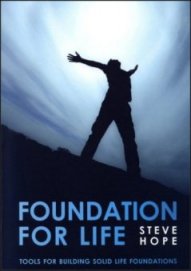(By Robert Layton)
I WAS HOLDING A NOTICE FROM my 13-year-old son’s school announcing a meeting to preview the new course in sexuality. Parents could examine the curriculum and take part in an actual lesson presented exactly as it would be given to the students.
When I arrived at the school, I was surprised to discover only about a dozen parents there. As we waited for the presentation, I thumbed through page after page of instructions in the prevention of pregnancy or disease. I found abstinence mentioned only in passing. When the teacher arrived with the school nurse, she asked if there were any questions. I asked why abstinence did not play a noticeable part in the material.
What happened next was shocking. There was a great deal of laughter, and someone suggested that if I thought abstinence had any merit, I should go back to burying my head in the sand. The teacher and the nurse said nothing as I drowned in a sea of embarrassment. My mind had gone blank, and I could think of nothing to say. The teacher explained to me that the job of the school was to teach “facts, ” and the home was responsible for moral training. I sat in silence for the next 20 minutes as the course was explained. The other parents seemed to give their unqualified support to the materials.
“Donuts, at the back, ” announced the teacher during the break. “I’d like you to put on the name tags we have prepared-they’re right by the donuts . . . and mingle with the other parents. “Everyone moved to the back of the room. As I watched them affixing their name tags and shaking hands, I sat deep in thought. I was ashamed that I had not been able to convince them to include a serious discussion of abstinence in the materials. I uttered a silent prayer for guidance. My thoughts were interrupted by the teacher’s hand on my shoulder. “Won’t you join the others, Mr. Layton?” The nurse smiled sweetly at me. “The donuts are good.” “Thank you, no, ” I replied. “Well, then, how about a name tag? I’m sure the others would like to meet you.” “Somehow I doubt that, ” I replied. “Won’t you please join them?” she coaxed. Then I heard a still, small voice whisper, “Don’t go.” The instruction was unmistakable. “Don’t go!” “I’ll just wait here, ” I said.
When the class was called back to order, the teacher looked around the long table and thanked everyone for putting on name tags. She ignored me. Then she said, “Now we’re going to give you the same lesson we’ll be giving your children. Everyone please peel off your name tags.” I watched in silence as the tags came off. “Now, then, on the back of one of the tags, I drew a tiny flower. Who has it, please?” The gentleman across from me held it up. “Here it is!” “All right, ” she said. “The flower represents disease. Do you recall with whom you shook hands?” He pointed to a couple of people. “Very good, ” she replied. “The handshake in this case represents intimacy. So the two people you had contact with now have the disease.” There was laughter and joking among the parents. The teacher continued, “And whom did the two of you shake hands with?” The point was well taken, and she explained how this lesson would show students how quickly disease is spread. “Since we all shook hands, we all have the disease.”
It was then that I heard the still, small voice again. “Speak now,” it said, “but be humble.” I noted wryly the latter admonition, then rose from my chair. I apologized for any upset I might have caused earlier, congratulated the teacher on an excellent lesson that would impress the youth, and concluded by saying I had only one small point I wished to make. “Not all of us were infected, ” I said. “One of us . . . abstained.”


